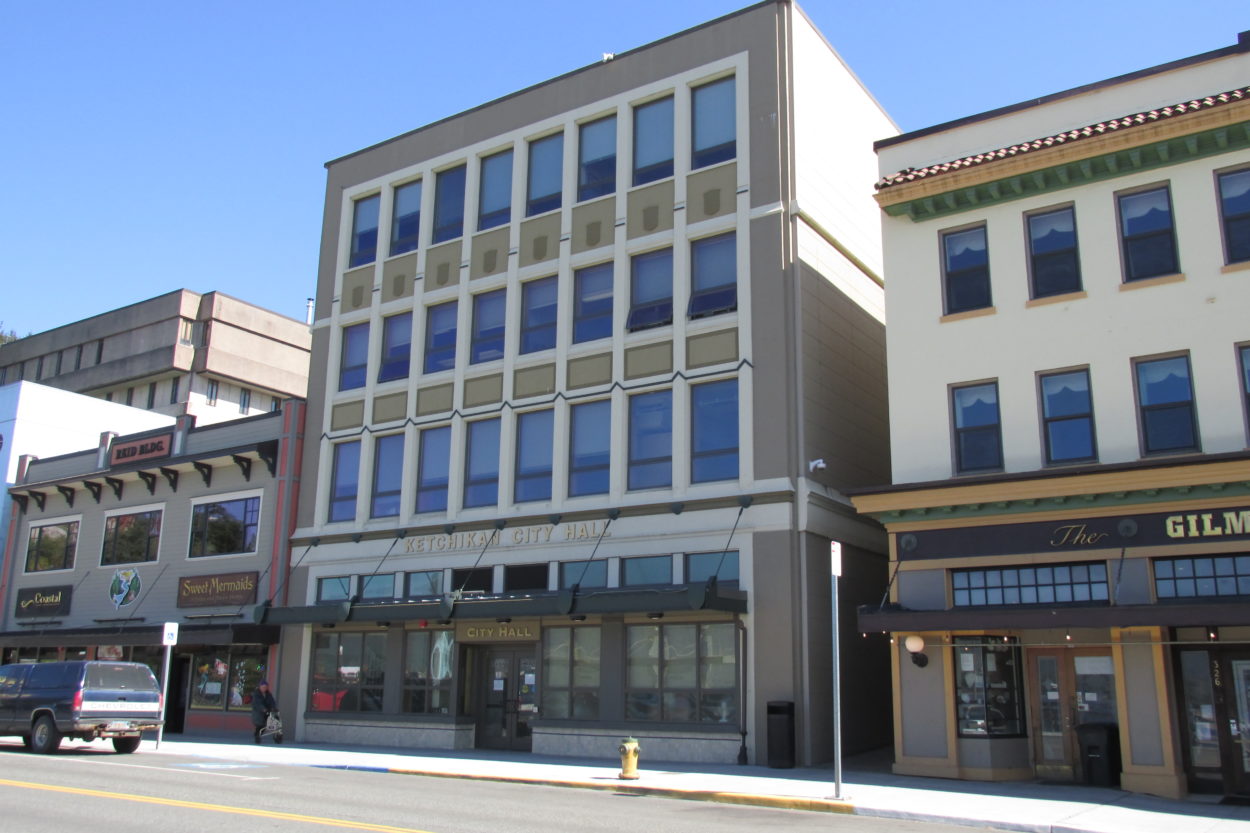
Ketchikan’s Borough Assembly is pressing pause on plans to double the community’s single-unit sales tax cap to allow the separate City Council to weigh in.
As it stands, Ketchikan’s city and borough only charge sales tax on the first $2,000 of most purchases. Doubling the cap would mean that charges of up to $4,000 on any single item would be subject to sales tax.
The city of Ketchikan’s finance director, Michelle Johansen, estimates that the change could raise approximately $200,000 in revenue for the city. But exactly how much the change would raise for the borough’s treasury is unclear. Borough officials say they don’t collect data from businesses that would allow them to assess the potential impact of the increase in the cap. But Borough Assembly member Grant EchoHawk, who proposed the increase during the assembly’s wide-ranging policy meeting in January, said on Monday that it would put the borough on firmer financial footing.
“We do know with absolute certainty that we have about $130 million worth of capital projects that need to get resolved, and the longer that we do not get these taken care of, the more expensive they get,” he said.
The change would primarily affect high-dollar purchases, and merchants selling expensive items like art and jewelry objected to the increase at Monday’s public hearing on the policy. The city and borough each raised the tax cap from $1,000 to $2,000 in 2019, and Scanlon Gallery & Custom Framing owner Susan Peters urged caution.
“I think it’s a little bit too soon to think about an increase. Also, I just want to remind everybody, there’s a lot of local businesses that sell things over $1,000, $2,000, $4,000, and these are year-round businesses. You have boat motors, you sell cabinets, Madison Lumber, I sell art, there’s local jewelry stores, tile, I mean, there’s a lot of businesses that sell things over that amount,” Peters told the assembly.
The Greater Ketchikan Chamber of Commerce submitted a letter opposing the increase, saying businesses are still recovering from the drop in tourism brought on by the pandemic.
Jay Ellis of Julie’s Fine Jewelry said that raising the tax cap would place an additional burden on businesses already bracing for a sales tax increase approved by Ketchikan’s City Council last year. The new seasonal sales tax system hikes total sales taxes to 8% during the summer tourism season.
“It’s going to hurt us. It’s going to cripple us,” he said. “I got a rent increase this week. Yay. What are we going to do? When is enough enough? We’ve been here for 30 years. We pride ourselves on supporting the community, donating. We’re going to have to close our doors if this keeps up. It’s just not worth it anymore.”
The tax cap increase would not affect residential rents — only the first $1,000 of monthly home rental payments are taxed. And the assembly unanimously amended the proposal to keep the sales tax cap for commercial rents at $2,000 in response to business owners’ objections.
Assembly member Jeremy Bynum opposed the tax cap increase and proposed killing the ordinance outright. He said raising the cap would make local businesses selling things like bulk fuel, boat motors and vehicles less competitive, pushing buyers to outside vendors.
“Those businesses are here trying to be very competitive in our market. So as I’d heard somebody say before, if we want less of something, tax it,” he said.
But the assembly rejected Bynum’s move to take the tax cap hike off the table 1-6, with only Bynum voting in favor.
Assembly member Jaimie Palmer said she sympathized with business owners’ concerns. But she said raising the tax cap might give the borough and city some room to cut residents a break on certain purchases.
“It’s hard to do business in Alaska, and it’s hard, overall, to live here,” Palmer said. “But part of the discussion on the Joint Cooperative Relations Committee meeting level was to talk about a comprehensive tax strategy — that we can start looking at exemptions. Where can we help locals? And what can we do that’s going to make it better to live here so all that hurt isn’t just put off on everybody who lives here?”
She did not describe in detail what those exemptions might be.
The assembly ultimately voted 5-2 to postpone consideration of the tax cap increase to mid-May to allow for the City Council to weigh in. Voting no were assembly members Bynum and Judith McQuerry. McQuerry opposed postponement but broadly supported the tax cap increase.
Ketchikan’s City Council is scheduled to discuss doubling the sales tax cap to $4,000 at a meeting that begins at 7 p.m. Thursday. Members of the public can address the council at the beginning of the meeting. The meeting is livestreamed on local cable channels and on the city’s website.
This story has been updated with the city’s estimate of the fiscal impact of the tax cap increase.





